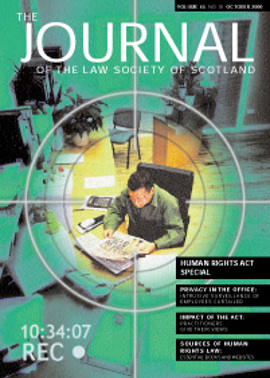Does the EU Regulation work?
The April Journal focused on the tribulations of the English administrators of Daisytek-Isa Ltd. The Italian Government-appointed administrator of Parmalat is finding matters no easier. In April, the Italian and Irish courts fell out over the group’s Irish subsidiary Eurofood IFSC after each ruled that that company’s centre of main interest (COMI) for insolvency purposes was in their own country.
For insolvency practitioners, it appears that despite many years’ work on the UNCITRAL Model Law on Cross Border Insolvency and the enactment of the European Union Insolvency Regulation two years ago, international co-operation is as far away as ever.
Who ruled first?
Eurofood IFSC was incorporated in Dublin’s International Financial Services Centre with the sole purpose of raising US$150m through a bond issue, the proceeds of which were lent on to Parmalat’s operations in Brazil and Venezuela. The Brazilian company is in administration; the Venezuelan company still trades normally. Provisional liquidators were appointed to Eurofood IFSC by the Irish courts on 27 January 2004. On 19 February, a court in Parma, Italy, declared Eurofood IFSC insolvent and found that its COMI was in Italy. According to the Regulation, once COMI is established, all other jurisdictions are bound by it and any challenge can only be made to the original court. The Parmalat administrator challenged the Irish decision, arguing that (1) the judge appointing the provisional liquidators had made no declaration as to the location of the COMI; and (2) the Parma decision, being the first occasion in which any court in the EU had declared where the COMI was, therefore established jurisdiction under the Regulation. The Dublin High Court gave this short shrift. They ruled that a declaration was not required; the objective fact that liquidators had been appointed was sufficient. The Irish proceedings represented main proceedings for Irish purposes and other jurisdictions must recognise them as such. The company’s COMI was in Ireland on the basis that (1) the company was administered in Ireland through Bank of America; (2) all its board meetings were held in Ireland although some Italian directors attended by telephone; and (3) the bondholders’ perception was that they were dealing with an Irish company. The European Regulation lays great store on where the COMI is perceived to be by third parties. On this basis the High Court upheld the liquidators’ appointment.
The decisions in both Ireland and Italy are subject of appeals, and until the appeal decisions are handed down the EU harbours two contradictory court orders. It is understood that the Irish courts are preparing a reference to the European Court of Justice.
An issue is also rumbling about whether the new out-of-court administration pursuant to the Enterprise Act 2002 falls outwith the scope of the EU Regulation. The Regulation contains an extended meaning of “court”, but one prominent German insolvency lawyer has opined that, for the lack of a court ruling, the out-of-court administration does not fall within the Regulation. Unless certain that there is no EU element in a case, it would therefore be safer to take the court route, at least until we have a decided case on the point.
A Spectrum of charges
Meanwhile, Scottish insolvency practitioners are observing with interest and some amusement the efforts of the English legal profession to resolve the dilemma upon which they were thrust by the Privy Council decision in Brumark ([2001] UKPC 28). Brumark, on appeal from New Zealand, threw considerable doubt on the efficacy of a fixed charge on book debts. A suitable test case, National Westminster Bank v Spectrum Plus has been instigated and we have already had judgments handed down by the Vice Chancellor and subsequently the Court of Appeal: [2004] EWCA Civ 670. The Vice Chancellor drew on the remarks of Lord Millett in Brumark and said that it was clear that under the Siebe Gorman form of charge ([1979] 2 Lloyd’s Rep 142) it was the parties’ intention that the company would be free to deal with the book debts and use them in the ordinary course of its business. The debts were therefore under the control of the company and this was inconsistent with the nature of a fixed charge. He dismissed the bank’s application to have the charge declared a fixed charge.
On appeal, the Court of Appeal accepted that the Privy Council’s reasoning was in conflict with the Court of Appeal decision in Re New Bullas [1994] 1 BCLC 485 and with Siebe Gorman, and that the reasoning in New Bullas is less satisfactory than that in Brumark. However it felt constrained by the doctrine of precedent from disregarding New Bullas. This had held that it was possible to have a fixed charge of book debts notwithstanding that the chargor was entitled to collect and use the proceeds of the debts. The Court of Appeal therefore overturned the Vice Chancellor and affirmed Siebe Gorman. Leave to appeal is now being sought.
Alistair Burrow, Tods Murray LLPIn this issue
- Pushing ahead with a modernising agenda
- Equality for the employed
- Break point
- The devil in the detail
- The work goes on
- Identity crisis
- The lawmen in black
- Degrees of insight
- Image and reality
- Terminal settlement
- The informed client
- Counting down
- Speaking for the firm
- Does the EU Regulation work?
- Power to the people?
- Website reviews
- Book reviews
- New build: getting the loan funds
- Keeper's Corner
- RCIL and community rights






